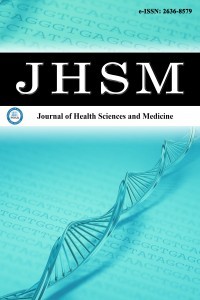1.
Long KA, Marsland AL. Family adjustment to childhood cancer:a systematic review. Clin Child Fam Psychol Rev. 2011;14(1):57-88.
2.
Alderfer MA, Long KA, Lown EA, et al. Psychosocial adjustmentof siblings of children with cancer: a systematic review. Psycho-Oncol. 2010;19(8):789-805.
3.
Gan LL, Lum A, Wakefield CE, Nandakumar B, Fardell JE.School experiences of siblings of children with chronic illness: asystematic literature review. J Pediatr Nurs. 2017;33:23-32.
4.
Gerhardt CA, Lehmann V, Long KA, Alderfer MA. Supportingsiblings as a standard of care in pediatric oncology. Pediatr BloodCancer. 2015;62(S5):S750-S804.
5.
Wiener L, Kazak AE, Noll RB, Patenaude AF, Kupst MJ. Standardsfor the psychosocial care of children with cancer and theirfamilies: an introduction to the special issue. Pediatr Blood Cancer.2015;62(S5):S419-S424.
6.
Karayağmurlu A, Coşkun M, Pekpak E, et al. The assessment ofquality of life, depression and anxiety in siblings of children withcancer: a case-control study. Turk J Oncol. 2021;36(1).
7.
Long KA, Lehmann V, Gerhardt CA, Carpenter AL, Marsland AL,Alderfer MA. Psychosocial functioning and risk factors amongsiblings of children with cancer: an updated systematic review.Psycho-Oncol. 2018;27(6):1467-1479.
8.
Huang YL, Yates P, Prior D. Factors influencing oncology nurses’approaches to accommodating cultural needs in palliative care. JClin Nurs. 2009;18(24):3421-3429.
9.
Beck AT, Steer RA, Carbin MG. Psychometric properties of theBeck depression inventory: twenty-five years of evaluation. ClinPsychol Rev. 1988;8(1):77-100.
10.
Hisli N. Beck depresyon envanterinin universite ogrencileri icingecerliligi, guvenilirligi (a reliability and validity study of Beckdepression inventory in a university student sample). J Psychol.1989;7:3-13.
11.
Zimet GD, Dahlem NW, Zimet SG, Farley GK. The multidimensionalscale of perceived social support. J Pers Assess. 1988;52(1):30-41.
12.
Eker D, Arkar H, Yaldız H. Factorial structure, validity, andreliability of revised form of the multidimensional scale ofperceived social support. Turk J Psychiatry. 2001;12(1):17-25.
13.
Achenbach TM. Manual for the Child Behavior Checklist/4-18and 1991 profile. University of Vermont, Department ofPsychiatry. 1991.
14.
Erol N. The adaptation and standardisation of the child behaviorchecklist among 6-18 year-old Turkish children. EunethydisEuropan Approaches to Hyperkinetic Disorders. 1995.
15.
Silva-Rodrigues FM, Pan R, Sposito AMP, de Andrade AlvarengaW, Nascimento LC. Childhood cancer: impact on parents’ maritaldynamics. Eur J Oncol Nurs. 2016;23:34-42.
16.
Lau S, Lu X, Balsamo L, et al. Family life events in the first yearof acute lymphoblastic leukemia therapy: a children's oncologygroup report. Pediatr Blood Cancer. 2014;61(12):2277-2284.
17.
Borrescio-Higa F, Valdés N. The psychosocial burden of familieswith childhood blood cancer. Int J Environ Res Public Health.2022;19(1):599.
18.
Howard Sharp KM, Fisher RS, Clark OE, et al. Long-termtrajectories of depression symptoms in mothers of children withcancer. Health Psychol. 2020;39(2):89.
19.
Altay N, Kilicarslan E, Sarı Ç, Kisecik Z. Determination of socialsupport needs and expectations of mothers of children withcancer. J Pediatr Oncol Nurs. 2014;31(3):147-153.
20.
Bates CR, Fairclough D, Noll RB, et al. Psychosocial functioningof caregivers of pediatric brain tumor survivors. Pediatr BloodCancer. 2022;69(4):e29565.
21.
Cordaro G, Veneroni L, Massimino M, Clerici CA. Assessingpsychological adjustment in siblings of children with cancer:parents’ perspectives. Cancer Nurs. 2012;35(1):E42-E50.
22.
Houtzager BA, Oort FJ, Hoekstra-Weebers JE, Caron HN,Grootenhuis MA, Last BF. Coping and family functioning predictlongitudinal psychological adaptation of siblings of childhoodcancer patients. J Pediatr Psychol. 2004;29(8):591-605.
23.
Houtzager B, Grootenhuis M, Caron H, Last B. Quality of life andpsychological adaptation in siblings of paediatric cancer patients,2 years after diagnosis. Psycho-Oncol. 2004;13(8):499-511.
24.
Bronfenbrenner U. Toward an experimental ecology of humandevelopment. Am Psychol. 1977;32(7):513.
25.
Van Schoors M, Caes L, Knoble NB, et al. Systematic review:Associations between family functioning and child adjustmentafter pediatric cancer diagnosis: a meta-analysis. J Pediatr Psychol.2017;42(1):6-18.
26.
Nolbris MJ, Ahlström BH. Siblings of children with cancer-Their experiences of participating in a person-centered supportintervention combining education, learning and reflection:Pre-and post-intervention interviews. Eur J Oncol Nurs.2014;18(3):254-260.
27.
Lähteenmäki P, Sjöblom J, Korhonen T, Salmi T. The siblings ofchildhood cancer patients need early support: a follow up studyover the first year. Arch Dis Child. 2004;89(11):1008-1013.

